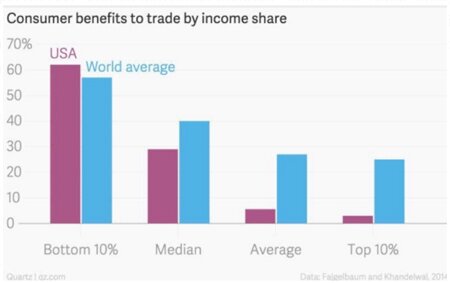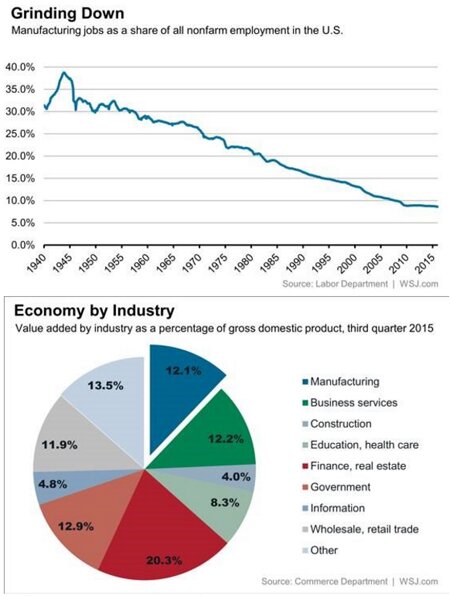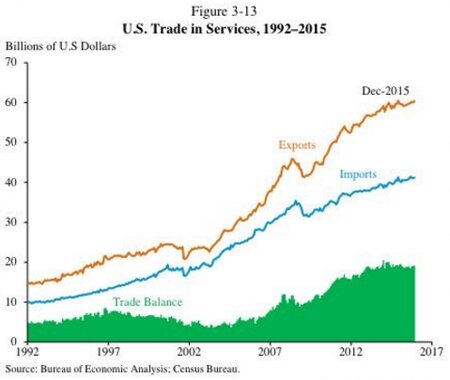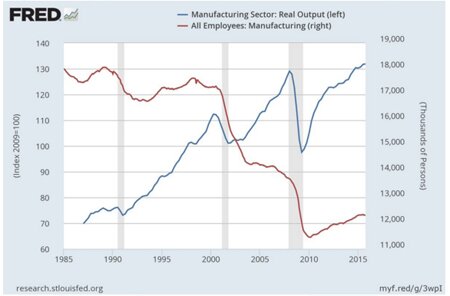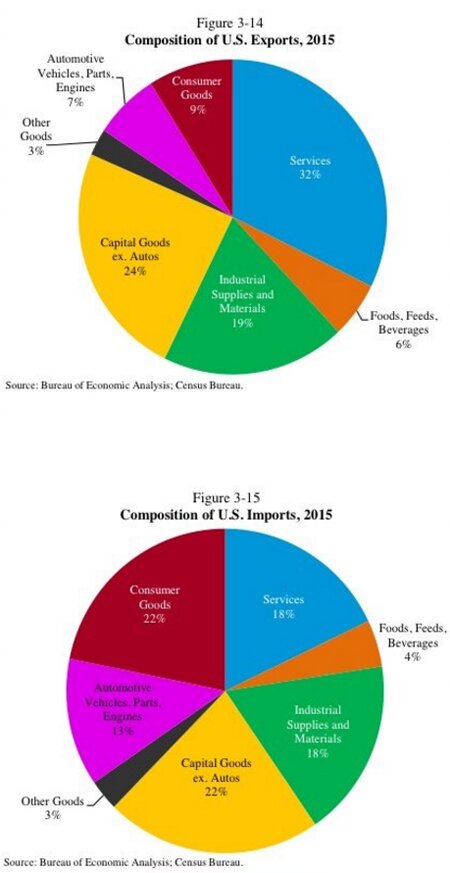After spouting the usual, already-debunked nonsense about China, U.S. trade deals, currency manipulation, and the trade deficit, Collins responds to an excellent Chuck Todd follow-up about what, as basic economics teaches us, would happen to U.S. consumers if President Trump were to impose prohibitive tariffs on imports:
Endorser Agrees: Trump Policies Will Benefit Rich at Expense of Poor and Middle Class
Last week, GOP presidential frontrunner Donald Trump received his first congressional endorsement, from Rep. Chris Collins, a Republican backbencher from New York who is of little import to the national race for president. In trotting on MSNBC to profess his love for all things Trump, however, Collins has done us all wonderful service: finally admitting the true intent and effect of Trump’s plan to impose massive tariffs on Chinese imports.
Todd: And what happens when everybody’s cost of living goes up? I mean, that’s been the threat of this, that if this happens, then there’s trade wars, there’s tariff wars, and then suddenly a pair of shoes costs, you know, three times what it costs today, clothes cost three times what it costs today, somebody walking into a Walmart is gonna find out that their bill is three times what it was. What do you say to that person if that’s what ends up happening in a trade war with China?
Collins: Well, there’s exaggeration there. Here’s what I will tell you. It is my belief from experience that China has been stealing our jobs at a 15 to 30 percent price differential by manipulating their currency, so there’s no question, we want those jobs back. And for every manufacturing job that comes back to the United States, there are six other jobs created. That’s the magic of manufacturing, it’s why China stole those jobs, it’s why every governor in the United States is fighting for manufacturing jobs.
And you are correct there could be a, a very small 10 or 15 percent inflationary impact over a period of time. But I’ll also tell you this, the United States needs some level of inflation. Just speak to the Federal Reserve. You can’t withstand where we’ve been at 0 percent inflation. A 2 and 3 and 4 percent inflation rate is healthy for the economy, and frankly the twenty trillion dollars that we’re saddled with in debt, with a 3 or 4 percent inflation, would be paid back with cheaper dollars, and that’s a benefit for our children and grandchildren.
Leaving aside for a moment the undeniable legal, political, and economic hurdles to unilaterally imposing a 45 percent tariff on all Chinese imports, as well as the utter gibberish at the end of Collins’ response about inflation and the federal budget (seriously, I have no idea), let’s take the plan at face value. According to Team Trump, their import tax would (i) force American consumers to pay 10 to 15 percent more for food, clothing, shoes, electronics, and other basic necessities; and (ii) thereby assist American manufacturing companies and their workers.
Put another way, Team Trump has now freely admitted they want to indirectly subsidize U.S. manufacturers via higher prices that American families and businesses would be forced to pay for these domestic producers’ goods.
This is a wonderful admission—one I don't think Trump himself has made yet—and I applaud Collins for both his honesty and for revealing the blatant immortality of Trump's plan. For starters, given that the average American household spends about $11,000 on food, clothing, and other similar items each year, a 10 to 15 percent tax on these goods translates to an extra $1,100 to $1,650 per year that American families would have to spend under President Trump for the same stuff that they're consuming right now—money they could have saved, invested, or spent on other important necessities like housing or health care.
The Less You Earn, the More Tariffs Hurt
Even worse, this new tax is highly regressive, with poor and middle-class Americans forced to spend a greater percentage of their paychecks on more-expensive products than would richer Americans. Free trade disproportionately benefits poor and middle-class consumers in America and elsewhere, and the Trump Tariff would have precisely the opposite effect.
“But wait!” you might say. “At least we’ll have more jobs and help American manufacturing!” Alas, this common retort is also problematic and revealing. First, the U.S manufacturing sector is a small share of both U.S. gross domestic product and jobs.
Instead, the U.S. services sector represents most of domestic economic output and employment, and is where America has some of its biggest comparative advantages.
So Trump wants to tax about 90 percent of all U.S. businesses and workers, many of whom work in our brightest and most innovative sectors, in order to subsidize a small and shrinking share of the U.S. economy.
Second, it's not certain these painful taxes would generate many manufacturing jobs, which have been declining for decades—long before the North American Free Trade Agreement existed or Chinese imports were more than a rounding error in U.S. GDP—as U.S. manufacturing output keeps setting records.
Indeed, even the most pessimistic studies about Chinese imports and U.S. manufacturing find that the vast majority of U.S. job losses were due to productivity gains, not trade. (Those studies' co-author, by the way, also adamantly opposes Trump-style protectionism.)
Third, not even all U.S. manufacturers would benefit from the Trump Tariff, because around half of everything imported into the United States (including from China) are inputs for other American manufacturers—inputs they use to remain globally competitive and thereby export American-made products.
Thus, the Trump Tariff, assuming it had its intended effects, would help only those upstream U.S. manufacturers (e.g., steel) that compete directly with China in the U.S. market. All other American manufacturers and workers wouldn’t be helped much at all, and might just be hurt—especially after China goes to the World Trade Organization and easily wins the right to retaliate against U.S. exports.
So there you have it: by Team Trump’s own admission, their big China trade plan would force the vast majority of Americans to subsidize—through painful, hidden, and regressive consumer taxes—a small share of U.S. manufacturers and workers (and a truly tiny portion of the total economy and workforce). It’s “Reverse Robin Hood,” anti-populist crony capitalism that, if it came in any other form (instead of a hidden tax targeting a foreign “adversary”), would have people rioting in the streets.
In this light, it’s quite easy to see why the plan, regardless of related law or politics or economics, is as morally bankrupt as Trump himself. Maybe this type of malignant demagoguery is good politics (although the latest polling data argue otherwise), but it’s certainly not good policy. No right-thinking person should support it.
Kudos to Todd for asking the simplest of follow-ups about the corrupt, anti-consumer aspects of Trump’s 45 percent tariff—one too few journalists ask and that, in this case at least, turned the respondent into a quivering mass of jibberjabber.
